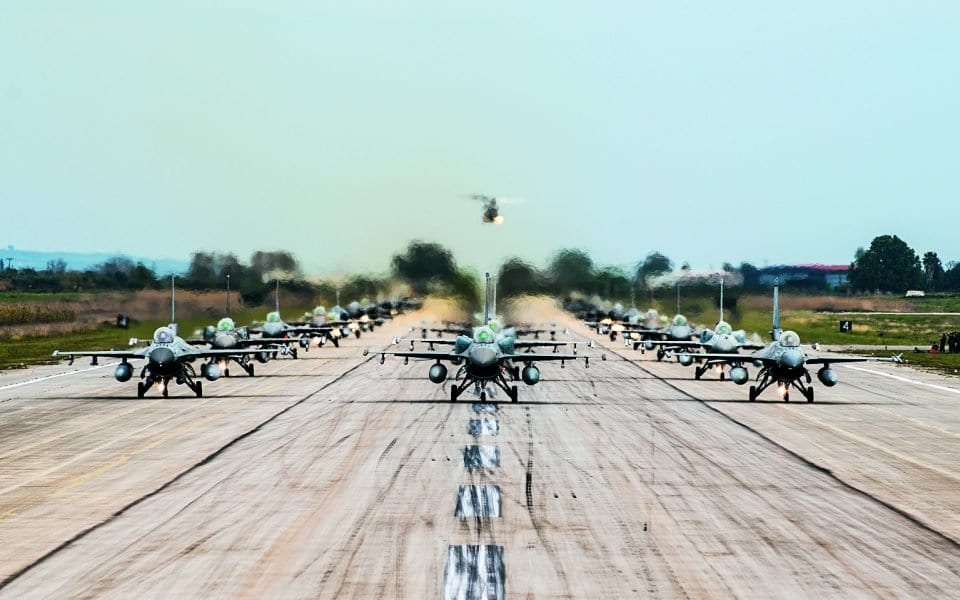By ROGER ZAKHEIM, National Review
As Iranian-backed terrorist groups lob rockets into Israel and the Biden administration withdraws all U.S. forces from Afghanistan, those clamoring for all American forces to be brought back home from the greater Middle East need a dose of realism. No matter how much fatigue politicians may have with the region, or how urgent it is for the U.S. to enhance its military focus on a rising China, U.S. forces should remain in the Middle East.
Some so-called “realists” view the remaining U.S. military presence in the Persian Gulf as the legacy of a bygone era when oil interests and democracy-promotion “neocons” reigned supreme. Today’s most urgent security challenges, the argument goes, require our military attention move eastward to Asia.
But it would be unrealistic and unwise to design a national-security strategy that relocates our naval fleet from Bahrain, our air assets from Qatar and the UAE, or our ground forces from Kuwait and Saudi Arabia. Let’s not be naïve: No modern president has been able to pull out of the Middle East. The attacks of September 11 and Iran’s malign activities and nuclear-weapons program are the most recent security challenges that justify a military presence with both counterterrorism and conventional military capabilities. Whether it be Barack Obama seeking to “rebuild at home” or Donald Trump railing against “forever wars,” neither president could counter the logic of sustaining our military footprint. In fact, both presidents reaped rich rewards from forward-deployed military assets when ordering our most significant counterterrorism successes since 2001: the strikes against Osama Bin Laden and Qasem Soleimani.
Presidents rely on a bedrock of military strength in the region to protect allies and deter adversaries. Our regional presence helped blunt the impact of President Trump’s unfortunate decision to reduce U.S. forces in Syria and reassured allies and friends, most notably Israel, that the U.S. was not ceding the region to Iran or Russia. The same presence allowed President Trump to strike the Assad regime’s chemical-weapons stockpiles, thereby deterring a brutal dictator and upholding international norms.
U.S. presidents, Republican and Democratic alike, have consistently relied on our military’s ability to project power in the Middle East to advance American soft power. For decades, presidents have pushed peace treaties between Israel and Arab states — the Abraham Accords is the most recent example. Our military strength and regional presence reinforce the stability that those agreements promise and deter spoilers, such as Iran, from undermining them. Why should this stop? Why throw this away?
Yet the value of our military presence is not limited to the region itself. The present competition with China plays out globally and includes the Middle East. China, thrusting and ambitious, has energy interests in the Persian Gulf and economic interests tied to the Suez Canal. The vacuum left by a military exit will hand China a strategic gift.
This deep-set presence in the Middle East is a critical piece of the architecture that allows the U.S. military to operate in other regions. Targeted or intelligence-collection operations — be they for deterrence by denial, intelligence collection, or a targeted strike — in South Asia or the Horn of Africa are feasible only because of our forward presence in the Middle East. This will become even more critical when the military exits its bases in Afghanistan but will still need to monitor and counter terrorist threats in the Afghanistan–Pakistan border region.
Remaining in the Middle East does not mean our presence there should forever look the same as it does today. There is unfinished work from the previous administration’s effort to decide which military platforms and assets ought to be forward-deployed in the region and how and when they should be used. We need to be open to tough questions. Is flashing an aircraft carrier or a B-52 bomber the most efficient way to deter Iranian misbehavior? Would a more cost-efficient playbook achieve our objectives, while freeing up resources to focus on China? Taking the military out of the region, on the other hand, would raise questions of a more hair-raising variety. Are we prepared to give China de facto control of one of the world’s most strategic choke points? Do we want Russia and Iran to have free rein in the Persian Gulf and the Levant?
**ROGER ZAKHEIM is the director of the Reagan Institute in Washington, D.C., and a former general counsel on the House Armed Services Committee.





